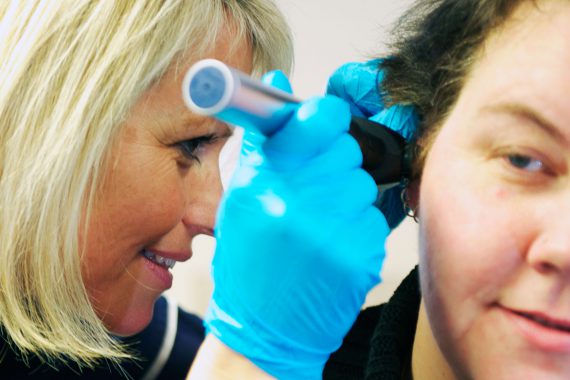Time to make the term ‘noctors’ a relic of the past


I have never been comfortable with the term ‘noctor’ (see also: phoctor, mocktor). I’m not keen on portmanteaus at the best of times (let’s not mention the B-word), but any noun that offends a significant proportion of the group it identifies is best consigned to the past.
The fact it isn’t remotely funny or even useful as a descriptor also renders it worthless. Granted, it might not be as despicable as the frankly awful ‘murse’, but it deserves no greater role than that sexist term.
I work at a practice that has hugely benefited from the addition of advanced practitioners to our primary care team. We have four currently, with a further two practice nurses undergoing training.
For experimental purposes only, I tried referring to them all as ‘noctors’ earlier this week. This didn’t end well for me. To them, the word ‘noctor’ casts them as a lesser contributor to the team. It defines them, not as what they are – an experienced pharmacist, two passionate and highly trained nurses, a dynamic paramedic – but what they are not, ie, a doctor.
Rather than mock advanced practitioners we should reflect on how it feels to be the target of pejorative terms
Or worse, it insinuates that they have ideas above their station: that they are playing doctors without the credentials to back it up.
Aside from momentarily losing the respect of my colleagues, my little trial confirmed what I already suspected: that ‘noctor’ does cause demonstrable offence. Now, what’s that I hear, the angry keyboard tapping of the It’s Political Correctness Gone Mad Brigade? I respect your right to defend your usage of ‘noctor’, but how come the impassioned defenders of free speech in these instances always come from the unaffected group?
We have a brilliant poster at our practice, a gift from one of our trainees, which is adorned with a genuine quote from one of the local neurologists (during a lecture to students at Sheffield Medical School). It is an example of GP-bashing at its finest: ‘If you don’t buck your ideas up and work hard at medical school, you will end up as a GP in Doncaster.’
As a GP in Doncaster, this makes me feel… actually, it makes me think the consultant who said it is a pompous buffoon. I’ve got a thick skin (I’ll even read the comments under this article), but I know some of my local colleagues would be deeply saddened by such a disrespectful remark. To a small minority in secondary care, GPs are viewed as a lesser form of doctor. Crap doctors. Coctors? Rather than mock advanced practitioners in their many forms, we should reflect on how it feels to be the target of pejorative terms.
I have read and do empathise with some of the concerns of more sceptical GPs about the proliferation of advanced practitioner roles. Similarly, I have heard about practices utilising ANPs as a kind of cut-price salaried GP, seeing unfiltered patients without appropriate supervision. This is far from ideal. My practice’s way of working, with a strong emphasis on triage and patient choice, couldn’t be more different. Talking to our ANPs, I also appreciate their concerns regarding the current situation, with the lack of agreed national standards and no specific register for ANPs. Addressing these issues would be a positive step.
Still, to each problem there is a potential solution. If you are concerned about polypharmacy, over-diagnosis and over-treatment, invest time in continuing professional development. Or better still, employ (or share) a pharmacist and encourage them to share their knowledge for the good of the team. After all, the University of Sheffield only offered me two or three lectures on pharmacology; my pharmacist has a masters degree, half a career of experience and an advanced prescribing diploma.
I firmly believe we need a range of solutions to solve the workforce crisis. At the top of my list would be more GPs, but the realist in me accepts that particular cavalry isn’t coming any time soon. Advanced practitioners, on the other hand, are here right now. And with the right support and mutual respect for both our skills and our differences, they can enhance our primary care teams significantly. Just don’t call them ‘noctors’.
Dr David Coleman is a GP partner and trainer in Doncaster
Pulse July survey
Take our July 2025 survey to potentially win £1.000 worth of tokens

Visit Pulse Reference for details on 140 symptoms, including easily searchable symptoms and categories, offering you a free platform to check symptoms and receive potential diagnoses during consultations.










